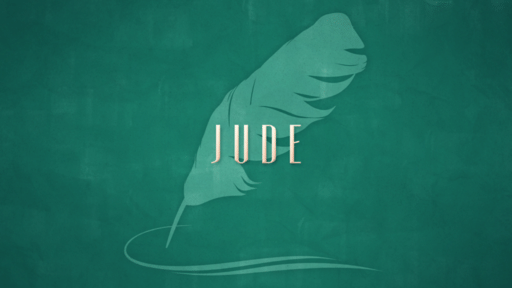Jude 11-16 (Part 1)

Notes
Transcript
Sermon Tone Analysis
A
D
F
J
S
Emotion
A
C
T
Language
O
C
E
A
E
Social
Background
Jude is one of the shortest books in the Bible, but packed with significant doctrine. The overall theme of the book is that believers should remain firm in their faith and resist the influence of false teachers.
Jude 11-13
Jude was previously describing certain persons who had crept into the Church unnoticed (Jude 4). They turn God’s grace into licentiousness (unrestrained indulgence in fleshly pleasures), and deny Jesus Christ. (Jude 8) They defiled the flesh, rejected godly authority, and reviled angels.
Because of this, Jude appealed to his audience to contend earnestly for the faith.
Jude compares these false teachers to Hebrews who disbelieved God, angels who left their proper domain, and those living in Sodom and Gomorrah.
Jude compares these false teachers to Hebrews who disbelieved God, angels who left their proper domain, and those living in Sodom and Gomorrah.
These people, in the same way as those they are compared to, are marked for destruction due to their false teaching and disobedience.
Jude then pronounces woe upon these people. This is common in prophetic language (Isa. 3:9; Revelation).
Jude gives three more OT examples: Cain, Balaam, and Korah.
Jude gives three more OT examples: Cain, Balaam, and Korah.
We studied Cain in Genesis 4, and learned that though he was a liar and a murderer, his underlying issue was his heart condition: pride.
Cain’s pride prevented him from giving his best to God, and he rejected God’s authority and wisdom.
He defiled Abel’s flesh by killing him, and he reviled God by lying to Him.
Balaam is the next example, and his story is told in Numbers 22-24.
In summary, Balaam was known by Balak, king of Moab, to be an effective diviner and was hired to curse Israel. God would not allow him to do so, and Balaam blessed Israel instead.
Because of this, Balaam counseled Moab to send their women into the camp of Israel and invite the men to worship idols, which caused God to send a plague (Num. 31:16; 25:1-3, 9, 18).
Balaam was a false teacher in that he led Israel astray (Rev. 2:14-15; 2 Pet. 2:15-16).
Korah is the final example, as seen in Num. 16:1-10, 19-21, 28-35.
Again, it was pride that was their downfall, but they also rejected the clear command that God gave to Moses.
Jude then describes these men using a variety of metaphors, such as “hidden reefs,” indicating that danger is out of sight just below the surface of the water.
They care only about themselves, and so are therefore devoid of value amongst the congregation
Jude 14-16
Jude quotes from a source here that is not considered inspired by God, 1 Enoch. It was not accepted by Jews or Christians during their canonizing of Scripture.
Most believe that 1 Enoch could not have been written that far back and survived the Flood.
Nevertheless, it is possible that God might have given a prophecy through this writing.
This doesn’t legitimize the entire writing, but the prophecy itself is in-line with Scripture.
What’s being described is the Second Coming of Christ, to the earth with his “holy ones” to execute judgment (Deut. 33:2; 2 Thess. 1:6-10; Rev. 19:11, 14-15).
In his final description that we will look at today, he calls these false teachers “grumblers.”
The significance here is that Israel continually grumbled against God and His chosen person to lead, Moses. We see that these people did not please God (1 Cor. 10:5-11).
Phil. 2:14-16.
They followed after their own lusts (licentiousness - Gal. 5:19-21).
Consistent with what we read previously, we see that they speak arrogantly, without respect for godly authority. But we also see that they speak flattering things so as to gain an advantage.
Paul warns Timothy about this very thing: 2 Tim. 4:1-5.
Here is where we will stop for today, but there are some things of note to discuss:
APPLICATION
APPLICATION
Believers should remain firm in their faith and resist the influence of false teachers.
Learn from the lessons of the past to avoid pitfalls in the present.
False teachers will attempt to lead us astray by turning grace into immorality and denying Jesus Christ.
Next week, we will finish the book of Jude.
